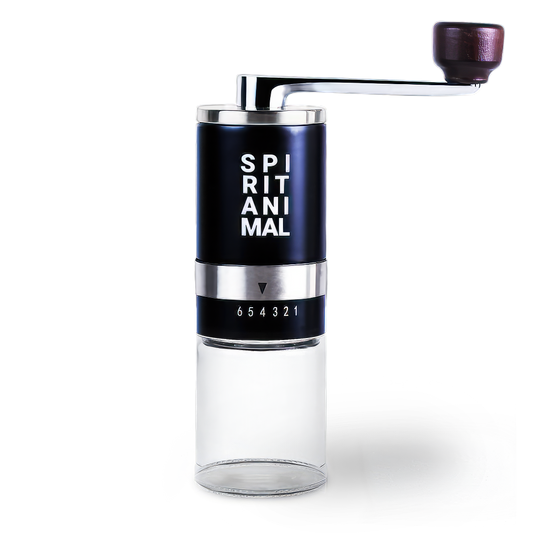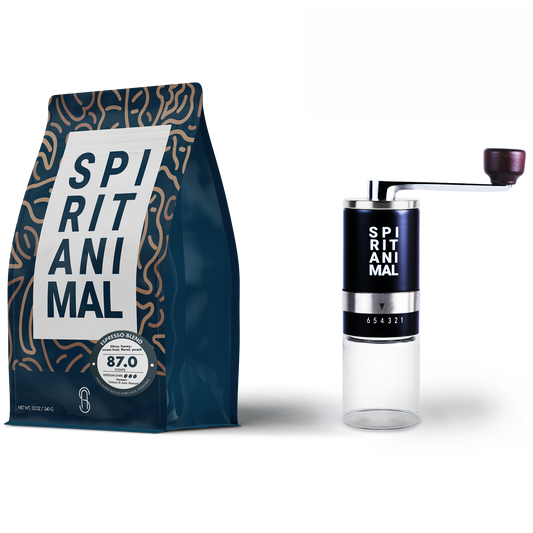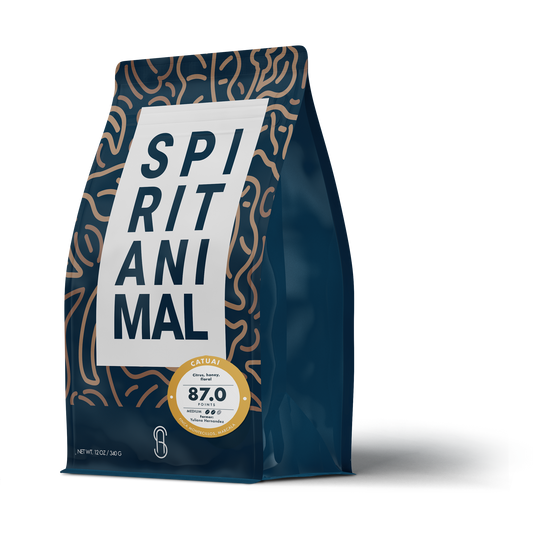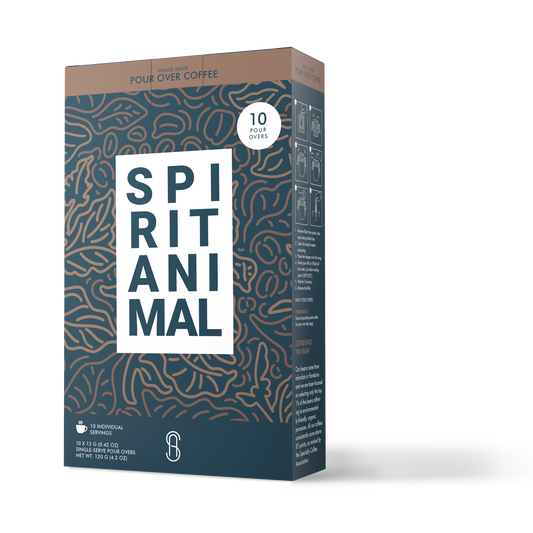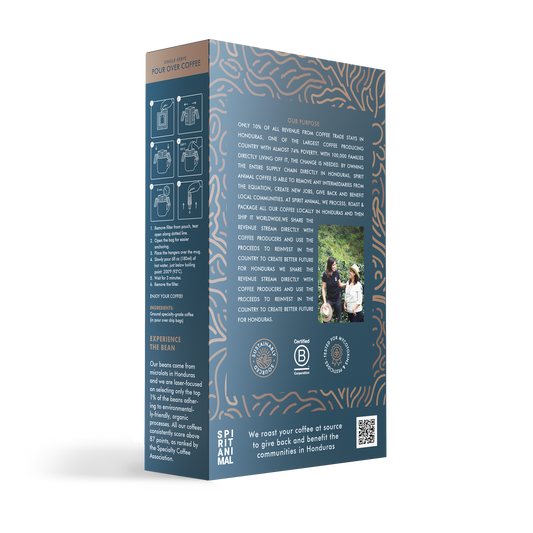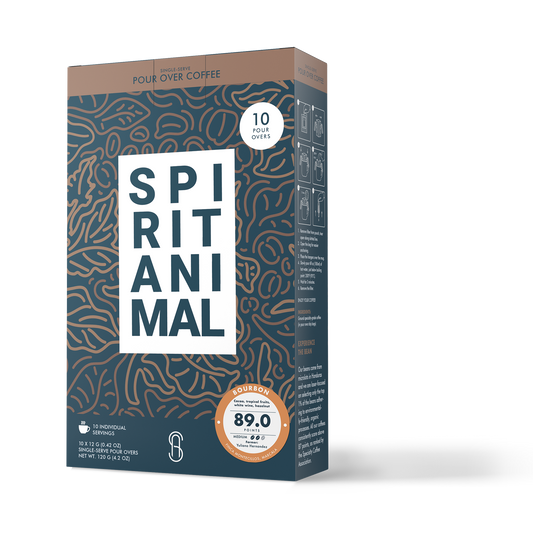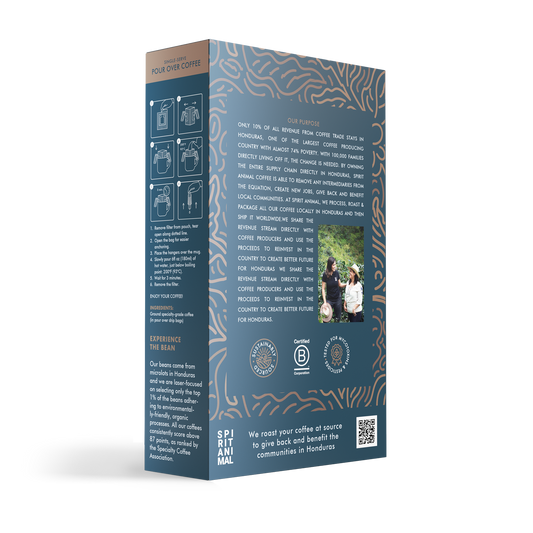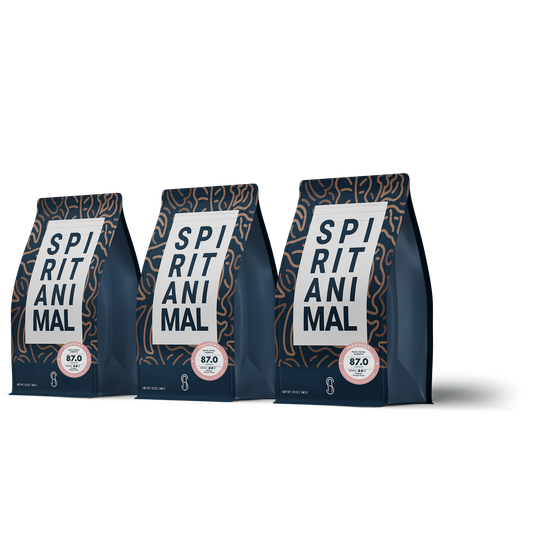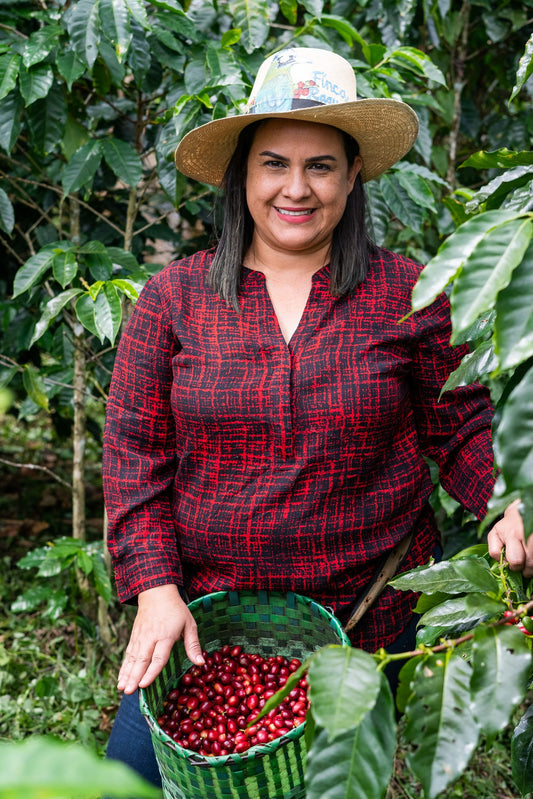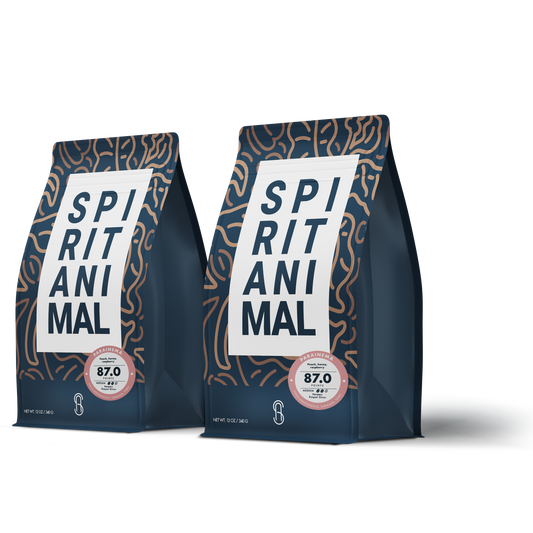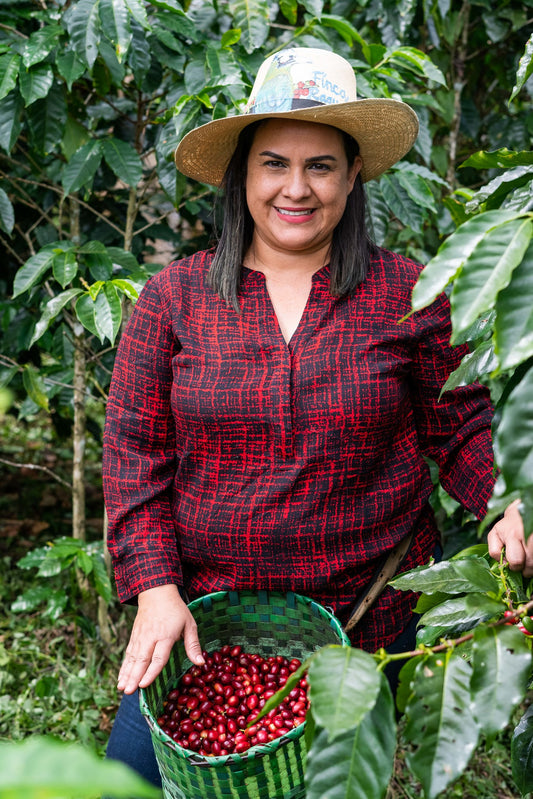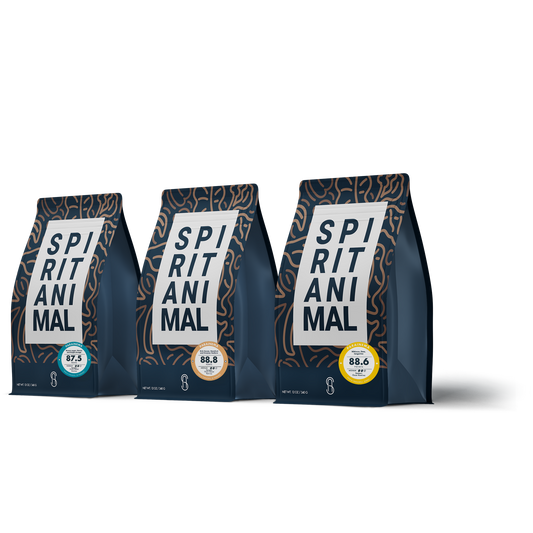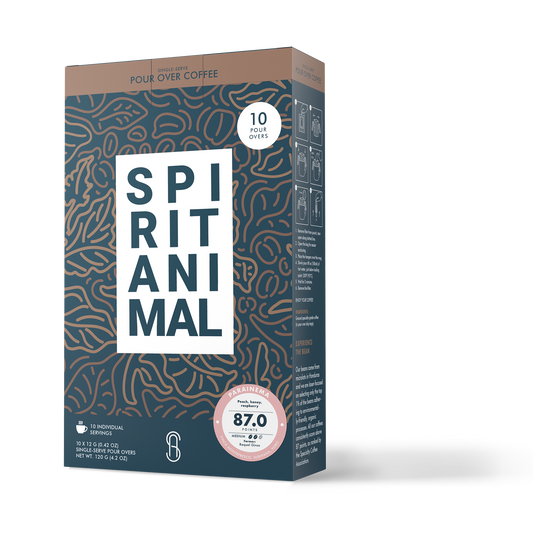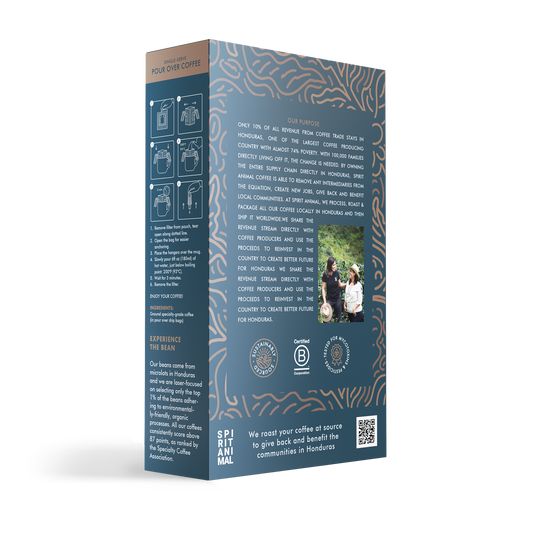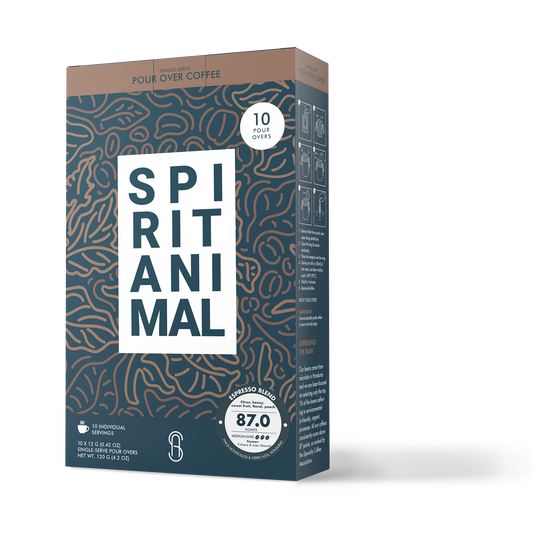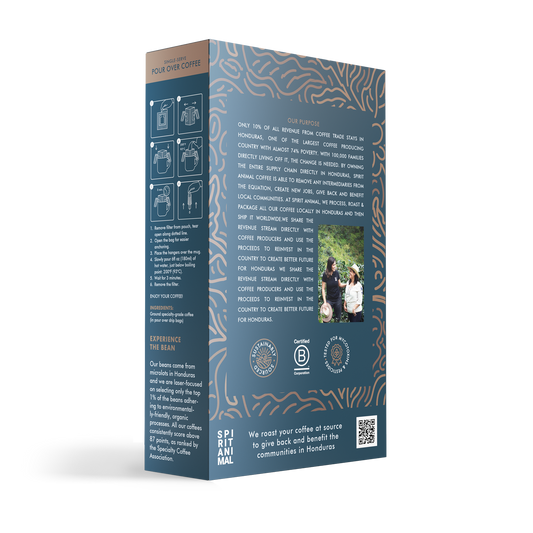Do you love the taste of fresh coffee? So do we. The only problem is that it’s hard to keep that taste consistent if you don’t store your coffee beans properly.
Many people mistake keeping their beans in the fridge or freezer, destroying the flavor and aroma.
In this blog post, we will discuss 5 expert tips on how to store fresh coffee beans so that you can enjoy their deliciousness every time.
Jump to your preferred section here:
- 5 tips to keep your coffee fresher for longer
- Factors that impact coffee freshness
- Coffee storage FAQs

5 tips to keep your coffee fresher for longer
1. Choose Your Container Wisely
Air is the number one enemy of fresh coffee. If you leave your bag of coffee wide open on the counter, it's going to go stale faster.
So, rule #1: always keep your coffee in a container that keeps air out.
This could be as simple as closing the coffee bag tightly and using a clip, or pouring the beans into a glass jar with a rubber seal. Even better, use a dedicated coffee storage canister that’s airtight. There are special containers (some made of stainless steel or ceramic) designed to lock out air – you might hear them called coffee vaults. If the container is opaque (not see-through), that's a bonus because it keeps light away too.
2. Vacuum Seal for Ultimate Freshness (Your Coffee Bag Matters!)
For ultimate freshness, consider vacuum-sealing your coffee. If you have a vacuum sealer at home (the kind you might use for food), you can seal your coffee beans in special bags and suck all the air out. With no air inside, your coffee beans stay fresh even longer. There are also fancy coffee canisters (like the Fellow Atmos or others) that let you push or pump out the air manually. It's a neat trick to really give those beans a safe, cozy environment.
Now, let's talk about the coffee bag itself. The bag your coffee comes in actually does matter. Have you noticed a little round hole or tiny valve on your coffee bag? That's a degassing valve. Freshly roasted coffee releases carbon dioxide gas, and that valve lets the gas escape without letting air or moisture in. This keeps the coffee from puffing up the bag and helps keep oxygen at bay. Also, check if the bag has a good resealable top (like a zip-lock strip). A bag with a one-way valve and a zip closure is great for short-term storage because it was made to keep coffee reasonably fresh until you finish the bag. For longer storage beyond a couple of weeks, though, you'll still want to transfer those beans to an airtight container (or vacuum seal them) as mentioned above.
3. Only Grind What You Need
I know it might be tempting to grind a bunch of coffee in advance to save time. (You might be thinking, "I don't have time to grind every morning!") But trust me, grinding only what you need when you need it is worth the effort. Ground coffee has much more surface area exposed to air than whole beans do, so it loses freshness very quickly – we're talking in a matter of hours, not days. If you grind your coffee right before you brew, you’ll taste a huge difference in flavor and aroma.
One way to make this easier is to have a little routine or "recipe" for your coffee. For example, measure out the amount of beans you need for one pot or one cup using a simple kitchen scale, then grind those beans and brew. This way, you're not guessing each time, and you're not grinding extra that will sit around and go stale. If possible, use a burr grinder (hand or electric) for a more even grind; it helps bring out the best flavor and it’s part of the fun of making coffee! By only grinding what you plan to use right away, you preserve the rest of your beans for next time.
Take a look at our top choice for a home-use grinder:
4. The Darker the Better (Keep It Cool and Dark)
And no, I'm not talking about dark-roasted coffee beans here – I'm talking about where you store your coffee. Light and heat can hurt your coffee's freshness. Think of coffee beans like vampires: they love the dark! Keep your beans away from direct sunlight and sources of heat. That means don’t store them on a sunny countertop or near appliances like the stove or oven. Heat can cause the flavorful oils in the beans to break down faster.
Room temperature is perfect for coffee storage, roughly around 60–70°F (15–21°C). Basically, if you feel comfortable in the room, your coffee beans will be comfortable too. Extreme temperatures (too hot or too cold) aren’t great for coffee sitting out. So aim for a nice cool, dark pantry or cupboard. If your container from
Tip #1 is opaque, even better, because it blocks out light. Remember: the darker and cooler, the better for your beans' long-term happiness.
5. Chill or Freezing Cold? (Freeze Coffee the Right Way)
This topic is one of my favorites to discuss. There’s a lot of debate about refrigerating or freezing coffee. Here's the deal: storing coffee in the fridge is usually not a good idea. Why? A fridge has a lot of moisture and odors from other foods. Coffee beans can absorb those smells (I once left an open bag in the refrigerator and my coffee ended up tasting like onions – yuck!). Even if the bag is closed, the constant opening of the fridge door causes temperature changes and exposure to air. So, skip the fridge. Freezing, on the other hand, can work well for long-term storage if you do it properly. Putting your coffee beans in the freezer helps slow down oxidation (the process that makes them go stale) and can lock in the aromas and flavors for a longer time. But you have to protect the beans from moisture and freezer burn.
Here are some tips for freezing coffee beans the right way:
- Freeze only fresh, high-quality coffee beans. There's no point in freezing coffee that’s already old or stale. Save the freezer space for your best beans that you want to keep tasting great.
- Use airtight, freezer-safe containers or bags. Moisture is the enemy, especially in the freezer. A thick plastic freezer bag with the air squeezed out works, or even better, use a vacuum-sealed bag. You can also use a glass jar or container with a tight lid, but make sure to fill it as much as possible (less empty air space inside).
- Divide into small portions. Instead of freezing a huge batch of beans together, split your coffee into smaller packs (enough for a week of brewing, for example). This way, when you need more coffee, you only take out what you’ll use soon. Keeping portions small means you won't have to repeatedly thaw and re-freeze a big supply (which can cause moisture to condense on the beans).
-
Let it thaw before you open it. When you remove a portion of coffee from the freezer, let the container sit at room temperature for a little while before opening it. This warms the beans up and prevents condensation from forming on them. Once they're back to room temp, go ahead and use them.
By chilling or freezing your coffee properly, you can extend its life significantly. Just remember to always keep it airtight and avoid temperature shock or moisture.
Factors that impact coffee freshness
Even with the best storage habits, it's useful to know why coffee loses freshness. When it comes to storing coffee beans, remember that coffee has a few main enemies that can steal its flavor over time. The key factors that impact coffee bean freshness are:

Oxygen (Air):
Exposure to air causes coffee to oxidize. Oxidation breaks down the flavorful oils and compounds in the beans, similar to how a sliced apple turns brown when exposed to oxygen. The more your coffee is exposed to air, the faster it will lose its taste. (That's why Tip #1 about keeping air out is so important!)

Light: Sunlight or UV rays can damage your coffee. Light speeds up the breakdown of those delicate compounds that give coffee its complex flavors. Think of it like color fading in the sun — the flavor fades too. That's why we keep coffee in the dark.

Moisture: Coffee beans are dry and like to stay that way. Any added humidity or moisture can cause them to deteriorate faster. They can even absorb odors or flavors from the moisture (and from anything around them). In worst cases, too much moisture could lead to mold. Keeping your coffee dry is key to preserving it.

Temperature: Both high heat and frequent temperature changes are bad for coffee. Heat can make the beans release their oils and aromas too quickly, and those precious flavors will be lost. Big temperature swings can also cause condensation (water droplets) on the beans, especially moving from cold to warm, which ties back to the moisture problem. A stable, cool temperature is best way for store coffee beans.
By controlling these factors – keeping air, light, moisture, and heat away from your coffee – you'll ensure your coffee stays tasty down to the last cup of the bag.
Coffee storage FAQs
Below are some common questions coffee lovers have about storing their beans (and ground coffee). Hopefully, these will clear up any remaining doubts you have!
> How long can you store coffee for?
Whole coffee beans are at their best within about 2 to 4 weeks after roasting, as long as you store them properly (airtight container, cool, dark place). They won’t suddenly go “bad” after that, but you’ll start to notice the flavor declining. After a month or two, the coffee might taste quite flat compared to a fresh batch. Ground coffee has a shorter shelf life. Once you grind coffee beans, try to use the grounds within about a week for the best taste. After even one week, ground coffee can start tasting stale. In a pinch, you can still use coffee beyond these times (it's not harmful to drink), but the quality won’t be as good. If you need to store coffee (especially ground coffee) for longer, consider freezing it as mentioned above to preserve flavor.
> Should I store coffee beans in the original bag?
For short-term use, the bag your coffee comes in is usually okay, especially if it has that one-way valve and a tight seal. Many high-quality coffee bags are designed to keep coffee reasonably fresh for a week or two. Just be sure to press out excess air and seal it well after each use. For longer storage, it's better to transfer your coffee beans to an airtight container. Most original bags (once opened) aren’t truly airtight, and they might let air and moisture sneak in over time. So if you plan to have the beans around for more than two to three weeks, do your coffee a favor and move it to a sturdier, airtight container to maintain maximum freshness.
> Is it okay to freeze coffee beans?
Yes, you can freeze coffee beans, and it’s a good option if you have more coffee than you can use in a couple of weeks. Freezing coffee locks in freshness and can extend the life of your beans for months. Just make sure you store them properly (see Tip #5 above). That means using an airtight, moisture-proof container or freezer bag, and splitting the coffee into small batches. When you're ready to use frozen coffee beans, remember to let them thaw to room temperature before opening the container. This prevents moisture from condensing on the beans. Once they’ve warmed up, you can grind and brew as usual. Keep in mind that while freezing keeps coffee from deteriorating, very long storage (say, beyond 3-6 months) might still result in some flavor loss. So it's best to use up frozen coffee within a few months for top quality.
> Should I keep coffee in the fridge?
Storing coffee in the refrigerator is generally not recommended. The fridge has a lot of humidity and smells from other foods that can mix with your coffee. Your coffee can actually absorb those odors (ever had coffee that faintly tastes like last night's leftovers? Not fun!). Plus, the temperature in a fridge isn’t cold enough to truly put coffee "to sleep" like a freezer does. It will still slowly go stale, and each time you open the fridge, the beans get exposed to warm air and moisture. If you want to keep coffee fresh for longer than a couple of weeks, the freezer is a better choice than the fridge (with the precautions we discussed). Otherwise, just stick to the airtight container in the pantry. Your coffee will be happier at room temperature in a dark place, away from the spooky smells of the fridge.
> How should I store ground coffee?
The rules for how to store ground coffee are pretty much the same as for whole beans: keep it in an airtight container, in a cool, dark, dry place. However, ground coffee will not stay fresh as long as whole beans. If you have ground coffee, try to buy it or grind it in small amounts that you can use up within a week or so. One extra tip: if you’ve bought ground coffee and want to keep it fresh a bit longer, you can divide it into a couple of smaller airtight bags or jars. Use one at a time and keep the others sealed up (or even freeze the portions you won’t use soon). This way you're not constantly exposing the whole supply to air each time you make coffee.
> How do I know if my coffee is stale?
Your nose and taste buds are the best judges. Stale coffee typically loses that wonderful rich aroma. If you open a container of coffee and it doesn’t smell like much, or it smells kind of dull, that’s a sign. Brew it, and if the coffee tastes flat, bitter, or just “off” compared to what you remember, it’s probably past its prime. Fresh coffee usually has a bright aroma and a complex flavor, while stale coffee tastes lifeless or bland. The good news is that stale coffee generally won’t make you sick – it just won’t make your taste buds happy. Coffee doesn’t really "expire" in a way that becomes dangerous (unless it gets moldy, which can happen if it got wet – then definitely don’t drink it). So if it's just stale, you won't harm yourself by drinking it, but you might not enjoy it. Treat yourself to a new bag of fresh coffee beans when you notice these signs of staleness. You deserve a tasty cup!
> Wrap Up
Storing your coffee beans correctly can make all the difference in your daily brew. By following these simple yet effective tips, you’ll enjoy consistently fresh and flavorful coffee every time. Even the best coffee beans in the world won’t taste great if they aren’t stored right, so treating your beans with a little care means every sip will be worth it. Remember, great coffee deserves great care. Treat your beans right, and they’ll reward you with that perfect cup of coffee whenever you need it. Happy brewing!


